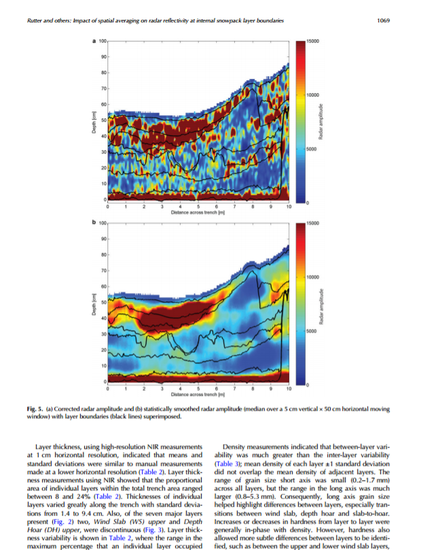
Microwave radar amplitude within a snowpack can be strongly influenced by spatial variability of internal layer boundaries. We quantify the impact of spatial averaging of snow stratigraphy and physical snowpack properties on surface scattering from near-nadir frequency-modulated continuous- wave radar at 12–18 GHz. Relative permittivity, density, grain size and stratigraphic boundaries were measured in-situ at high resolution along the length of a 9 m snow trench. An optimal range of horizontal averaging (4–6 m) was identified to attribute variations in surface scattering at layer boundaries to dielectric contrasts estimated from centimetre-scale measurements of snowpack stratigraphy and bulk layer properties. Single vertical profiles of snowpack properties seldom captured the complex local variability influencing near-nadir radar surface scattering. We discuss implications of scaling in-situ measurements for snow radiative transfer modelling and evaluation of airborne microwave remote sensing of snow.
This document was originally published by Cambridge University Press in Journal of Glaciology. This work is provided under a Creative Commons Attribution 4.0 license. Details regarding the use of this work can be found at: https://creativecommons.org/licenses/by/4.0/. doi: 10.1017/jog.2016.99
Available at: http://works.bepress.com/hanspeter_marshall/31/
